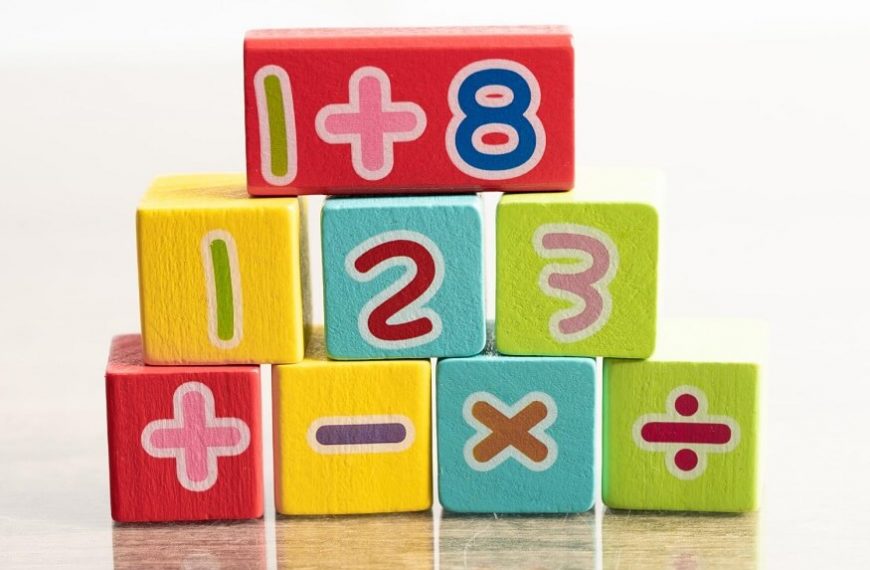Helping Your Child Excel in Mathematics: Effective Strategies and Tips
In a country like India, where mathematics is a cornerstone of scholastic and professional success, it’s critical to address the difficulties that youngsters with this subject confront. According to recent statistics, a significant number of Indian students express a dislike for mathematics, which can hinder their overall academic growth.
Maths is a fundamental skill that is necessary for many areas of our lives. As a parent or someone responsible for the academic excellence of a child, it can be disheartening to see them struggle with maths.
You must have many times wondered – “How to help my child with maths at home?” Fear not! In this blog, we will explore effective strategies to help your child develop a positive attitude towards mathematics and excel in their mathematical abilities.
Create a Positive Environment
The first step in supporting a child struggling with maths is to establish a positive and encouraging atmosphere. Avoid making negative comments about maths and instead focus on highlighting its real-world applications. Discuss how mathematics is used in everyday activities like cooking, shopping, or even playing games. By showcasing the relevance of maths in their lives, you can help your child understand its practical importance.
Highlight Career Opportunities
Mathematics opens up a world of exciting career opportunities. From data analysis and statistics to computer science and engineering, professions that require a strong mathematical background are in high demand. Introduce your child to inspiring stories of mathematicians, scientists, engineers, and entrepreneurs who have utilised mathematical skills to make significant contributions to society. By showcasing the diverse career paths that maths can lead to, you can inspire your child to embrace the subject and explore their own potential.
Emphasise Problem-Solving Skills
Mathematics develops critical thinking and problem-solving skills in addition to teaching numbers and formulae. Encourage your child to approach maths as a puzzle to be solved rather than a set of abstract concepts. Engage them in challenging and stimulating problem-solving activities that require logical reasoning and creativity. By focusing on the process of problem-solving and celebrating the strategies employed, your child will develop a positive mindset towards tackling mathematical challenges. By approaching maths with curiosity, breaking it down into manageable steps, and seeking help when needed, anyone can discover how to not hate maths and appreciate its logic and problem-solving potential.
Make Maths Meaningful and Relevant
To counter your child’s dislike for maths, help them understand how mathematical concepts related to the world around them. Incorporate real-life examples and applications into their learning. For instance, while cooking, involve them in measuring ingredients or calculating recipe proportions. When planning a family trip, ask them to budget and calculate expenses. By connecting maths to their everyday experiences, you can demonstrate its practical value and ignite their interest.
Utilise Interactive Learning Resources
Harness the power of technology and interactive learning resources to make maths engaging and enjoyable. There are numerous educational websites, apps, and online platforms that offer interactive lessons, games, and quizzes to make learning maths a fun experience. Explore these resources with your child, allowing them to learn at their own pace while reinforcing their understanding of mathematical concepts. The interactive nature of these tools can transform maths from a dull subject to an exciting adventure.
Understand the Significance of Mathematics
Mathematics is not just a subject to be conquered for exams; it is a life skill with profound applications in various aspects of our daily lives. From managing finances to understanding scientific concepts, mathematics forms the foundation for critical thinking, problem-solving, and logical reasoning. You may not be aware of its crucial importance in industries like engineering, technology, finance, and even art and design. By appreciating the practical significance of mathematics, you can help your child realise its relevance beyond textbooks and motivate them to engage with the subject.
Here are just some of the reasons:
- a) Critical Thinking and Problem-Solving: Mathematics cultivates critical thinking skills and nurtures the ability to approach problems logically and systematically.
- b) Practical Applications: Mathematics is deeply intertwined with our daily activities, often in ways we may not immediately recognize. From managing finances and budgeting to measuring ingredients while cooking, understanding mathematical concepts enables children to navigate the world more effectively.
- c) Mathematical Literacy: In today’s data-driven world, being mathematically literate is crucial. Children who develop strong mathematical skills can interpret and analyse data, recognize patterns, and draw meaningful conclusions.
- d) Career Opportunities: Mathematics opens up a world of exciting career opportunities across various fields. Professions such as engineering, computer science, finance, statistics, and architecture rely heavily on mathematical skills.
- e) Cognitive Development: Engaging with mathematics promotes cognitive development in children. It enhances their memory, concentration, and attention to detail. These cognitive skills are not only beneficial for mathematics but also for overall academic achievement and intellectual growth.
- f) Confidence and Persistence: Conquering mathematical challenges builds confidence and resilience in children. As they gradually overcome obstacles,they develop a sense of accomplishment.
Conclusion
So parents, helping a child with a dislike for mathematics requires patience, creativity, and a positive mindset. Try some of these effective strategies for learning how to not hate maths and instead develop a positive relationship with the subject. By creating a supportive environment, identifying specific challenges, making maths enjoyable, relating it to real-life scenarios, seeking additional support, and being a supportive mentor, you can empower your child to develop a more positive attitude towards maths.
Remember, learning maths is a gradual process, and each small step forward counts. Celebrate your child’s progress, no matter how small, and acknowledge their effort. With your guidance and the right strategies, your child can conquer their dislike for maths and develop a strong foundation in this essential subject.
Their proficiency in maths can empower them to innovate, contribute, and make a positive impact on society.
And if you’re looking for a preschool that understands the importance of a well-rounded education, consider EuroKids preschool. EuroKids provides a nurturing and stimulating environment that fosters a love for learning, including mathematics. The specially crafted curriculum is completely focused on holistic development and a child-centric approach. Every kid is given the attention and assistance they require to succeed academically and personally by EuroKids, who makes sure of it.
So, embark on this maths journey with your child, and watch as their perception of maths transforms into one of excitement, curiosity, and growth.


















